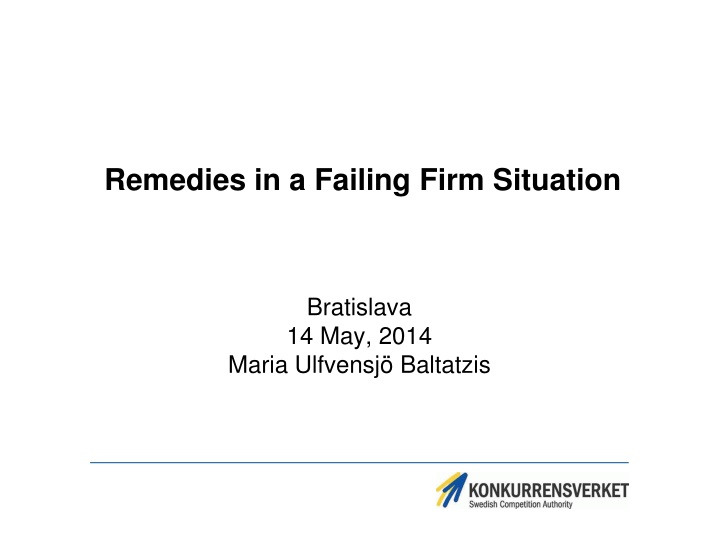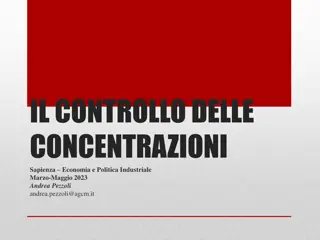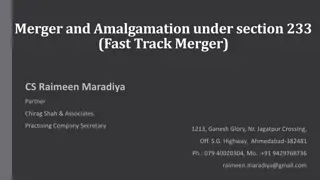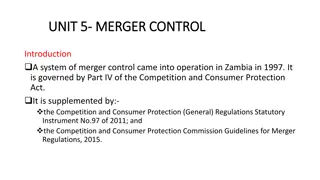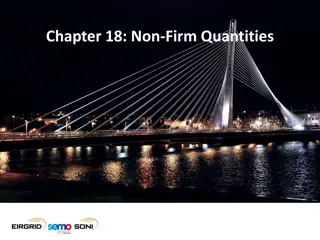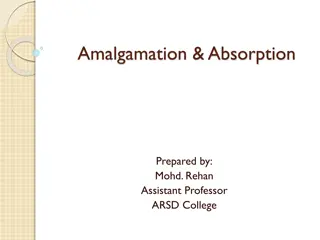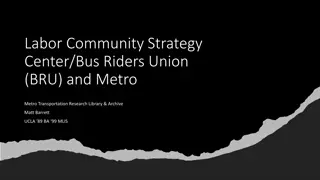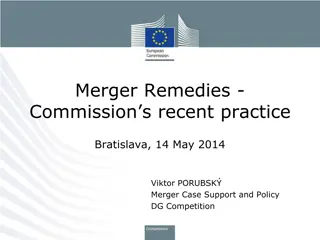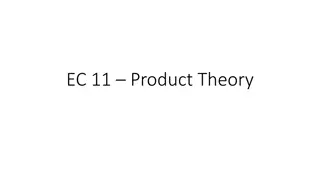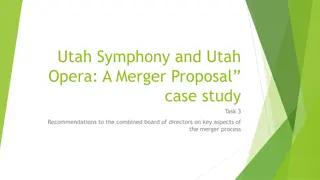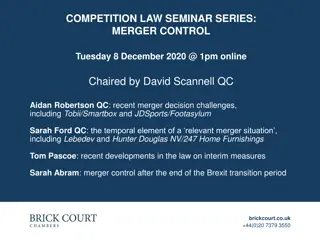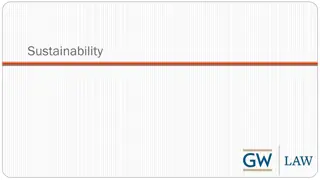Analysis of Failing Firm Defense in Arla-Milko Merger
The Arla-Milko merger, involving two major dairy players in Sweden, raised concerns of monopolistic practices. Parties invoked the failing firm defense, arguing that Milko was on the brink of failure without the merger. The Swedish Competition Authority (SCA) assessed various criteria, ultimately accepting that Milko would indeed fail without the merger. Disagreements surfaced regarding the fate of Milko's assets if the firm failed, leading to detailed analyses and discussions on merger-specific effects.
Download Presentation

Please find below an Image/Link to download the presentation.
The content on the website is provided AS IS for your information and personal use only. It may not be sold, licensed, or shared on other websites without obtaining consent from the author.If you encounter any issues during the download, it is possible that the publisher has removed the file from their server.
You are allowed to download the files provided on this website for personal or commercial use, subject to the condition that they are used lawfully. All files are the property of their respective owners.
The content on the website is provided AS IS for your information and personal use only. It may not be sold, licensed, or shared on other websites without obtaining consent from the author.
E N D
Presentation Transcript
Remedies in a Failing Firm Situation Bratislava 14 May, 2014 Maria Ulfvensj Baltatzis
The Merger Arla no. 1 dairy in Sweden by far! Milko no. 3 dairy in Sweden Both parties agricultural cooperatives Fresh dairy products rarely transported over long distances Parties traditional areas of distribution share a long, densely populated border Milko had a long non-profit history , but did initially not claim failing firm
Competition between Parties Product Fresh milk Plain youghurt Plain soured milk Findings In some areas: - Close competition between parties - Little competition from other producers - Competition not particularly close - Significant competition from other producers - Massive joint market share at national level - Potential for competition from imported butter High transport cost Flavoured yoghurt Flavoured soured milk Cream-based products Butter Low transport cost Long life milk a niche product in Sweden not close substitute to fresh milk!
The Failing Firm-Defense Parties claimed no merger-specific effects due to Milko being about to fail The SCA applied the 3 criteria test set out in the European Commission s guidelines on horizontal mergers
Analysis of Criteria 1 and 2 Criterion 1: the SCA accepted that Milko would fail absent merger Criterion 2: the SCA could not see that there were other, less anti-competitive merger options Milko argued plausibly that it had historically explored other merger opportunities, which had failed Merger opportunities restricted by the fact that Milko was a cooperative Criteria 1 and 2 satisfied, and failure scenario became the relevant counterfactual to the merger
Analysis of Criterion 3 Criterion 3: the parties and the SCA did not agree on the fate of Milko s assets in case of Milko failing Both Arla and the SCA made an analysis of what would happen in case of Milko s failure Predicted outcomes were similar but not identical Differences between predicted outcomes formed the basis for discussion on merger-specific effects
Failure Scenario Areas of agreement Most of Milko s suppliers (i.e. dairy farmers) of raw milk would switch to supply Arla instead Some suppliers of raw milk would leave the market all together Insolvent Milko would quickly become unable to operate as a going concern due to lack of raw milk Assets would be liquidated by administrator Areas of disagreement The fate of Milko s assets when liquidated Different views on which transactions that were likely
Milkos Assets Asset Products affected Fresh milk Plain yoghurt Plain soured milk Cream-based products Butter Powdered milk Interested buyers Gr d processing facility stersund processing facility Brands Yoghurt Soured milk
Merger-Specific Effects Compared to Milko being Liquidated Gr d facility and brands Could plausibly be sold to a dairy other than Arla Could plausibly exert competitive pressure on Arla when taken over by other dairy Merger-specific effect for fresh dairy in the vicinity of Gr d , and for certain kinds of fresh dairy (important brands in the Milko region) stersund facility No evidence of potential buyers No merger-specific effect in the otherwise potentially problematic market for butter
The Remedy Package Arla undertook to divest the Gr d facility Reserve price set according to estimated scrap value in order to ensure that package did not go beyond identified merger-specific effects Arla undertook to divest several of Milko s brands No reserve price stersund facility not included due to no evidence of potential buyers
Outcome Brands divested almost immediately by Arla Sold to several different smallish, established dairies Gr d divested in autumn 2012 by Trustee Several bidders in auction At least one competitor to Arla participated In the end, Coop (a retail chain) won the auction Coop now an alternative buyer of raw milk in the former Milko-region
Happy End Coop Cow Coop Milk
